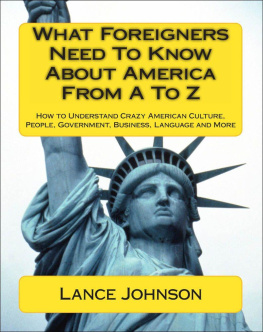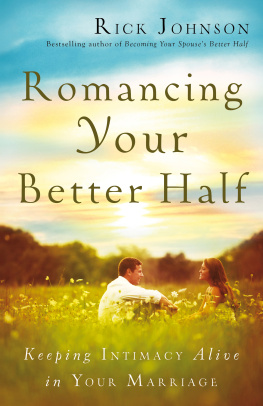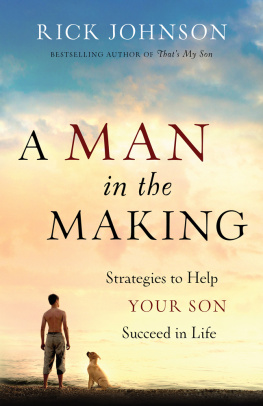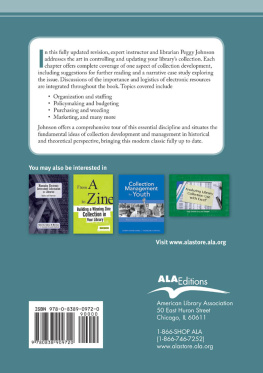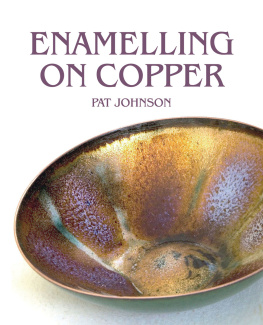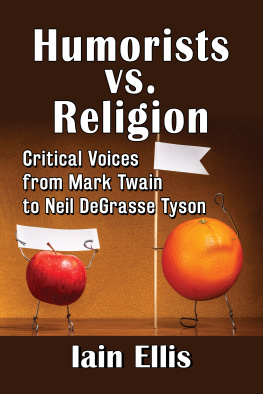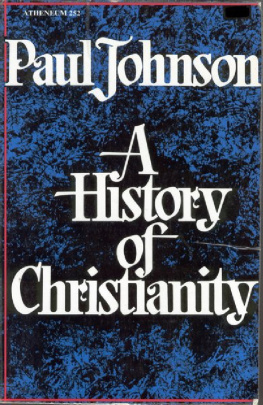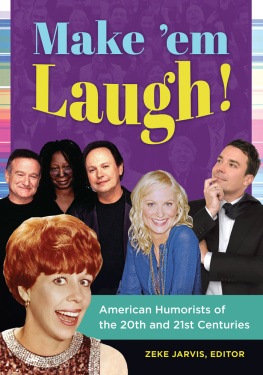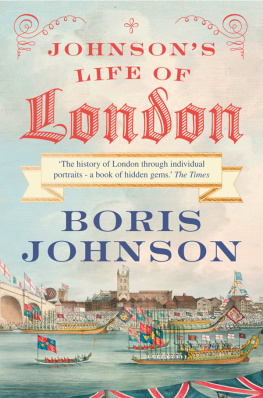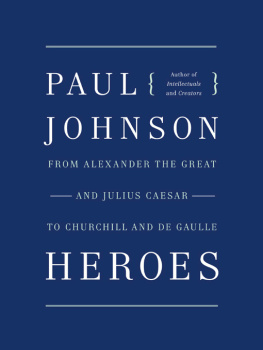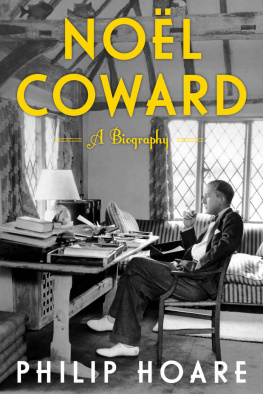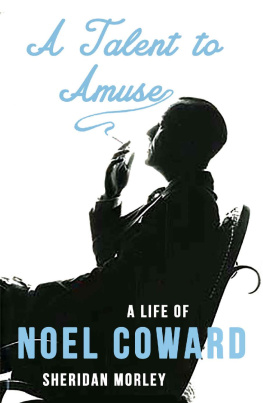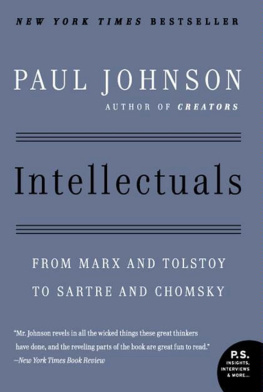Johnson - Humorists: from Hogarth to Noël Coward
Here you can read online Johnson - Humorists: from Hogarth to Noël Coward full text of the book (entire story) in english for free. Download pdf and epub, get meaning, cover and reviews about this ebook. City: New York, year: 2010, publisher: HarperCollins;Harper Perennial, genre: Non-fiction. Description of the work, (preface) as well as reviews are available. Best literature library LitArk.com created for fans of good reading and offers a wide selection of genres:
Romance novel
Science fiction
Adventure
Detective
Science
History
Home and family
Prose
Art
Politics
Computer
Non-fiction
Religion
Business
Children
Humor
Choose a favorite category and find really read worthwhile books. Enjoy immersion in the world of imagination, feel the emotions of the characters or learn something new for yourself, make an fascinating discovery.

- Book:Humorists: from Hogarth to Noël Coward
- Author:
- Publisher:HarperCollins;Harper Perennial
- Genre:
- Year:2010
- City:New York
- Rating:3 / 5
- Favourites:Add to favourites
- Your mark:
- 60
- 1
- 2
- 3
- 4
- 5
Humorists: from Hogarth to Noël Coward: summary, description and annotation
We offer to read an annotation, description, summary or preface (depends on what the author of the book "Humorists: from Hogarth to Noël Coward" wrote himself). If you haven't found the necessary information about the book — write in the comments, we will try to find it.
Humorists: from Hogarth to Noël Coward — read online for free the complete book (whole text) full work
Below is the text of the book, divided by pages. System saving the place of the last page read, allows you to conveniently read the book "Humorists: from Hogarth to Noël Coward" online for free, without having to search again every time where you left off. Put a bookmark, and you can go to the page where you finished reading at any time.
Font size:
Interval:
Bookmark:
PAUL JOHNSON
HUMORISTS
From Hogarth to Nol Coward

This book is dedicated to Blondie, Taki, and Carla,
who make me laugh the most.
W . C. FIELDS, WHO spent sixty years trying to amuse people on stage, in print, on the airwaves, in silent movies and talkies, put his finger on it: We know what makes people laugh. We do not know why they laugh. Laughter is like dreams. We know as much about it now as we did five thousand years ago, and no more. About 2900 BC, in ancient Egypt, a hieroglyph for laugh or laughing appeared. It went like this:
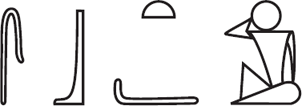
Sir Alan Gardiner, who knew more about ancient Egypt than anyone else, who compiled an Egyptian Grammar, and who had a beautiful hand for these majestic squiggles, said, Whenever I write that hieroglyph, I find myself laughing. Why, Sir Alan? Oh, I dont know, Old Boy. Thinking of those funny old priests, chipping it into the rock.
The Old Testament contains twenty-six laughs, which do not form any particular pattern or expand our knowledge of why people laugh. The first occurs in chapter 18 of the book of Genesis, and is the first time a case of laughter was recorded in words, about 1500 BC. Abraham is sitting outside his tent. Angels appear, one of whom turns out to be God. Abraham sends his wife Sarah scurrying back into the tent to prepare a meal for his guests. God gives Abraham the astounding news: Lo! Sarah, thy wife, shall have a son. And Sarah heard it in the tent door, which was behind him. Now Abraham and Sarah were old and well stricken in age; and it ceased to be with Sarah after the manner of women. Therefore Sarah laughed within herself, saying, After I am waxed old shall I have pleasure, my lord, being old also?
God was affronted by Sarahs laugh, thinking it a reflection on His powers: Is anything too hard for the Lord? Then Sarah denied laughing, saying, I laughed not: for she was afraid. And God said, Nay but thou didst laugh.
This little episode from Genesis is so fascinating that it makes one believe in the Bible as an authentic record. It is not only the first recorded joke but also the first dirty jokeSarah laughs not at the idea of a baby but at the idea of intercourse with her Old Man, and achieving orgasm (have pleasure). What, would Abraham get an erection again? It seemed unlikely, did it not? And therefore Sarahs laugh was skeptical; it was also ironic, not to say sardonic. As such, very irritating to the all-powerful deity.
The incident shows that there is no such thing as a simple laugh. I am tempted to add: or an innocent laugh. The commonest occasion of laughter, especially collective laughter, is the distress, perplexity, or discomfiture of others. God himself does not laugh in the Old Testament, but the pagan gods of Homer laugh repeatedly in the Iliad. As Matthew Arnold puts it in Empedocles on Etna, The gods laugh in their sleeve / to watch man doubt and fear. And that relentless philosopher Thomas Hobbes, translating a line of Homer (Iliad 1.561), comes up with: And then the gods laugh all at once, outrightat mans peril. No wonder that he produced, in Leviathan, the definition that the passion of laughter is nothing else but sudden glory arising from a sudden conception of some eminence in ourselves by comparison with the infirmity of others, or with our own formerly.
In the English language, the attempts of people, from the earliest times, to record laughter in words meant that there were large numbers of different ways of spelling the word: the Oxford English Dictionary records thirty-six. King Alfred had a go in 897. Chaucer, in 1385, in his prologue to The Legend of Good Women, got it almost correct: Ryght so move ye oute of myn hert bringe switch vois, right as yow lyst, to laughe or pleyne, a line so lovely as to make the senses tingle. So far as we can see, Shakespeare wrote it different ways, his favorite being loffe, perhaps reflecting Warwickshire pronunciation. This occurs in some unfeeling but riotous lines of Puck in A Midsummer Nights Dream, usually omitted from most productions as too vulgar:
And sometimes lurk I in a gossips bowl
In very likeness of a roasted crab.
And when she drinks, against her lips I bob,
And on her withered dewlap pour the ale.
The wisest aunt, telling the saddest tale,
Sometimes for three-foot stool mistaketh me;
Then slip I from her bum, down topples she,
And tailor cries, and falls into a cough;
And then the whole quire hold their hips and loffe.
The fall must have hurt, and the fact that the whole quire laughed at the old womans pain must have made it worse, so here is a case, all too common, of laughter being aggressive and cruel. Max Beerbohm, himself adept at amusing, thought that there are two elements in the publics humor: delight in suffering, contempt for the unfamiliarone reason people laugh at foreigners or strangers generally. Both motives are reprehensible. Laughter, when you analyze it, is no joke. One of the best essays on the subject I know is in that usually dull tome, the modern Encyclopaedia Britannica, and was written by Arthur Koestlerwho is no joke either, having ended his melancholy life not merely by committing suicide but by persuading his much younger and more cheerful mistress to do likewise. Koestler argues that there is usually something nasty about a laugh, irrespective of the level of sophistication of those enjoying it. Thus he instances the very primitive Bushmen of the Kalahari Desert of South Africa. What really makes them roar is when a springbok, fatally wounded by a bullet, continues to jump and kick in its death agony. He describes laughing as a luxury reflex, containing elements of aggression and hostility, even savagery, as well as humor. This accords with the view of Henri Bergson, the French-Jewish philosopher, who wrote a famous tract on the subject, later published as a book, Le rire. In laughter, he wrote, we always find an unavowed intention to humiliate and so to correct our neighbor. In particular, he added, mirth was the collective punishment of society on the unsociable individual.
I think this last point may be more true of France than of England or America. Jean-Paul Sartre told me in 1953 that his ability to make people laugh saved my life at school. He said, I was small, ugly, no good at games, not much good at lessons because my eyesight was so poor. They said I smelt too, and maybe I did. But I could make them laugh. What I found was that it was easier to make a lot of them laugh, than just one of them. And the laughter was louder if I could direct it at a single little boy, even more miserable and friendless than I was. So thats what I did. And is it the same principle in the theatre, Matre? Of course. Absolument.
There have been many attempts to analyze the physical side of laughter, especially in antiquity and in the Renaissance, indeed right up to the end of the nineteenth century. Charles Lambs friend Thomas Holcroft, who dabbled in this field, wrote, The physiognomy of laughter would be the best of elementary books for the knowledge of man. Personally, I doubt it. Herbert Spencer, as one would expect, had an elaborate theory about emotions, including risibility, being translated into bodily movements. It was taken up by Freud, who agreed that such emotion was repressed: in relief from tension, the muscles of the smile follow the line of least resistance, so laughter is a form of respiratory gymnastics. And here is Koestler again: Laughter is a trigger-release, detonating vast amounts of stored emotions, derived from various, often unconscious sources: repressed sadism, sexual tumescence, unavowed fear, even boredom. He drew attention to the explosive laughter of a group of schoolboys, in class, at a trivial detonator, usually a word with some hidden sexual connotation. My memories of boarding school are that such words as mutual (code for mutual masturbation), bishop (description of the head of a penis), and windy (obscurely derived from the Americanism blow job, itself a mystery to do with whaling), could set the class on a roarto the intense irritation of the master, needless to say, who reacted like God to Sarahs laughter.
Next pageFont size:
Interval:
Bookmark:
Similar books «Humorists: from Hogarth to Noël Coward»
Look at similar books to Humorists: from Hogarth to Noël Coward. We have selected literature similar in name and meaning in the hope of providing readers with more options to find new, interesting, not yet read works.
Discussion, reviews of the book Humorists: from Hogarth to Noël Coward and just readers' own opinions. Leave your comments, write what you think about the work, its meaning or the main characters. Specify what exactly you liked and what you didn't like, and why you think so.

